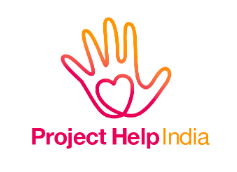 This is a pic of one of the slum kids who attend one of our schools at www.kotdwarahelp.org This is a pic of one of the slum kids who attend one of our schools at www.kotdwarahelp.org I’ve just been most fortunate to sit under the teaching of Jim Knight. Jim is an internationally renowned educator ( www.instructionalcoaching.com and www.corwin.com/focusonteaching/) who speaks on instructional coaching and the art of conversation. I was blown away by what he had to say, especially his module on the ‘Principles of Partnership”. I highly recommend him as an inspiring thought leader. This blog aims to provide a challenge (with my sincere thanks to Jim Knight) regarding the partnership we have with others in our schools. There are so many partnerships and central to this are relationships. We must value healthy relationships if our classrooms and our schools are to be strong and full of life and vitality. Schools provide the context for people in community to ‘do life with each other’. Consider the many partnerships that exist in a school; student – student teacher – student teacher – teacher teacher – parent Principal – student Principal – teacher Principal – parent school – wider community community So what characterises strong, healthy, inclusive partnerships in our schools? I include my notes from Jim’s Seminar, and while he is specifically referring to the partnership between an instructional coach and a teacher, I believe there is great depth and perspective as we apply these principles to the myriad of relationships that exist in our schools. Equality – A healthy partnership recognises that relationships are between equals. Choice – In partnerships, one individual does not make decisions for the other, rather they offer choices for learning. “Because partners are equal, they make their own individual choices and make decisions collaboratively.” Voice – My perspective and opinion matters. As humans we flourish when we feel that our voice matters. “All individuals in partnership have opportunities to express their point of view”. Let us never underestimate the power of student voice in our schools. Dialogue – We learn when we engage in authentic dialogue. “Partners engage in conversation, learning together as they explore ideas.” Reflection – Reflective thinking is the key to success and improvement. Praxis – Understanding the point or the ‘why’ of the conversation. Why are we coming together, and what is the goal that we share? Momentum and growth occur when we are talking about something that matters. Reciprocity – Do we truly believe that we are equals? Partners should expect to get as much as they receive. Our schools are learning communities. Think about the people you serve and do life with. I encourage you to apply these seven principles to the perspective and stance that you take in your conversations with others. To be in partnership means that you share something with another person or party. Perhaps it’s working towards a common goal, something you are learning or trying to teach and explain to a child, someone you both care about, a problem that needs solving, or striving towards a shared vision. The more we value authentic relationships built on mutual trust and respect, we truly will experience powerful learning. We will empower one another, and that ‘shared something’ will be sure to grow. I teach because I want you to learn and to flourish.
1 Comment
5/23/2024 10:58:41 am
I wanted to express my gratitude for your insightful and engaging article. Your writing is clear and easy to follow, and I appreciated the way you presented your ideas in a thoughtful and organized manner. Your analysis was both thought-provoking and well-researched, and I enjoyed the real-life examples you used to illustrate your points. Your article has provided me with a fresh perspective on the subject matter and has inspired me to think more deeply about this topic.
Reply
Leave a Reply. |
claremont.nsw.edu.auarchives
June 2024
categories |

